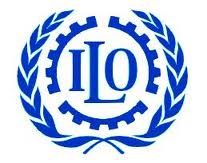The ILO adopts the recommendation on national social protection floors: The role of ATD and other NGOs.

The ATD Fourth World international team in Geneva led a delegation representing 54 NGOs in the debate on the ILO Recommendation on national social protection floors, which was adopted by the International Labour Conference in June 2012.
The team drafted a common statement, including various proposals for amendments, some of which were included in the final text in a modified form. In the address to the Conference the team’s spokesperson expressed the common support for the proposal which was seen as “a crucial step forward in the fight against poverty and social exclusion. And we are ready to work hand in hand with all of you – governments, employers’ and workers’ organizations – to implement the Recommendation.”
The concept of social protection floors as proposed by the ILO is the provision by national governments of at least four basic social security guarantees aimed at preventing or alleviating poverty, vulnerability and social exclusion. These four guarantees are:
- access to a nationally defined set of goods and services, constituting essential health care, including maternity care, that meets the criteria of availability, accessibility, acceptability and quality;
- basic income security for children, at least at a nationally defined minimum level, providing access to nutrition, education, care and any other necessary goods and services;
- basic income security, at least at a nationally defined minimum level, for persons in active age who are unable to earn sufficient income, in particular in cases of sickness, unemployment, maternity and disability; and
- basic income security, at least at a nationally defined minimum level, for older persons.
While this is a very positive outcome, its coverage extends only to people who are formal residents in that country. In our common statement we had argued strongly that all people should be entitled to social protection; at those who are “stateless” and who are often the most in need. This proved to be a contentious point for some governments and our arguments on this point could not change their opinions.
The concept of social protection floors has gathered momentum across international decision makers, which has given rise to the belief that they can become a reality. The Governments at the Rio + 20 Summit in June committed themselves to the objectives of the ILO Recommendation, and the UN General Assembly and the G20 have now commissioned the ILO to present them with a work programme for implementation.
As a follow-up, the 54 NGOs, whose number has now increased to over 60, are planning to set up a so-called “Coalition for a Social Protection Floor”. This coalition would have the following aims: (i) to influence international debates, in particular with regard to the post-2015 development framework; (ii) to create a platform for learning experience; and (iii) to advocate the adoption and implementation of social protection floors.
While there is still a lot of work to be done, it has been established that social protection floors are affordable, a formal international Instrument is now in place and there is political will. The contribution of ATD Fourth World and its Alliance of NGO’s has also been recognized, and the door remains open for us to continue our work of taking the social protection floors from concept to reality.
PG/WvG/26.6.2012

